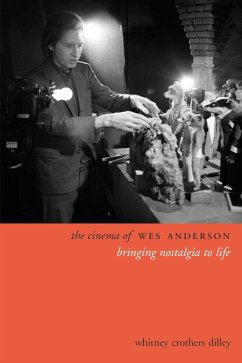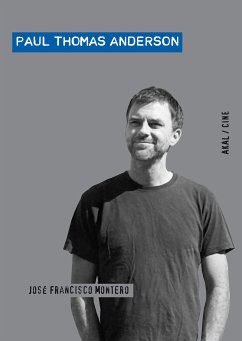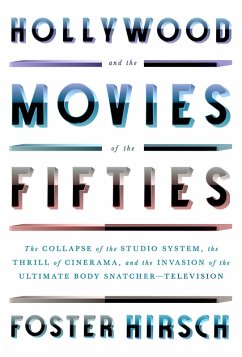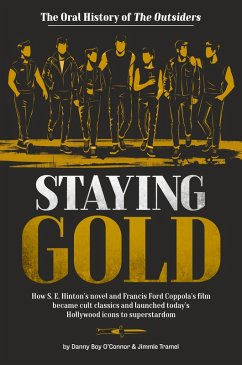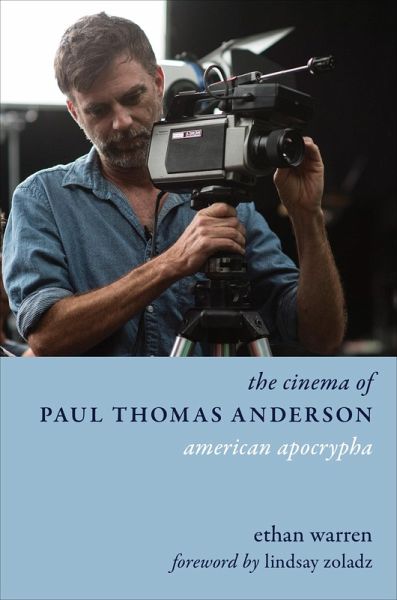
The Cinema of Paul Thomas Anderson (eBook, ePUB)
American Apocrypha
Versandkostenfrei!
Sofort per Download lieferbar
22,95 €
inkl. MwSt.
Weitere Ausgaben:

PAYBACK Punkte
11 °P sammeln!
Paul Thomas Anderson's evolution from a brash, self-anointed "Indiewood" auteur to one of his generation's most distinctive voices has been one of the most remarkable career trajectories in recent film history. From early efforts to emulate his cinematic heroes to his increasingly singular late films, Anderson has created a body of work that balances the familiar and the strange, history and myth: viewers feel perpetually off balance, unsure of whether to expect a pitch-black joke or a moment of piercing emotional resonance.This book provides the most complete account of Anderson's career to d...
Paul Thomas Anderson's evolution from a brash, self-anointed "Indiewood" auteur to one of his generation's most distinctive voices has been one of the most remarkable career trajectories in recent film history. From early efforts to emulate his cinematic heroes to his increasingly singular late films, Anderson has created a body of work that balances the familiar and the strange, history and myth: viewers feel perpetually off balance, unsure of whether to expect a pitch-black joke or a moment of piercing emotional resonance.
This book provides the most complete account of Anderson's career to date, encompassing his varied side projects and unproduced material; his personal and professional relationships with directors such as Jonathan Demme, Robert Altman, and Robert Downey Sr.; and his work as a director of music videos for Fiona Apple, Joanna Newsom, and Haim. Ethan Warren explores Anderson's recurring thematic preoccupations-the fraught dynamics of gender and religious faith, biological and found families, and his native San Fernando Valley-as well as his screenwriting methods and his relationship to his influences. Warren argues that Anderson's films conjure up an alternate American history that exaggerates and elides verifiable facts in search of a heightened truth marked by a deeper level of emotional hyperrealism. This book is at once an unconventional primer on Anderson's films and a provocative reframing of what makes his work so essential.
This book provides the most complete account of Anderson's career to date, encompassing his varied side projects and unproduced material; his personal and professional relationships with directors such as Jonathan Demme, Robert Altman, and Robert Downey Sr.; and his work as a director of music videos for Fiona Apple, Joanna Newsom, and Haim. Ethan Warren explores Anderson's recurring thematic preoccupations-the fraught dynamics of gender and religious faith, biological and found families, and his native San Fernando Valley-as well as his screenwriting methods and his relationship to his influences. Warren argues that Anderson's films conjure up an alternate American history that exaggerates and elides verifiable facts in search of a heightened truth marked by a deeper level of emotional hyperrealism. This book is at once an unconventional primer on Anderson's films and a provocative reframing of what makes his work so essential.
Dieser Download kann aus rechtlichen Gründen nur mit Rechnungsadresse in A, D ausgeliefert werden.









